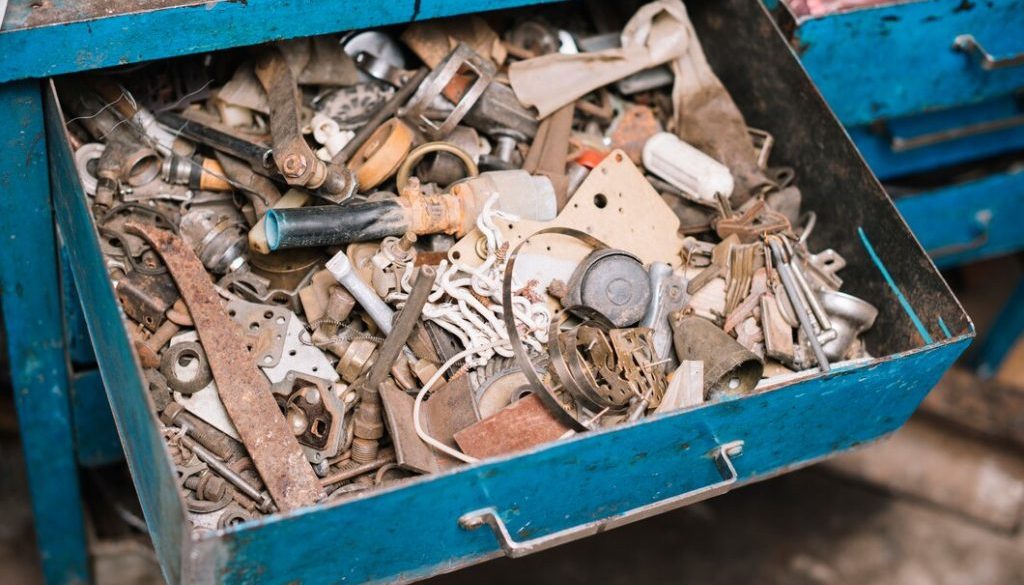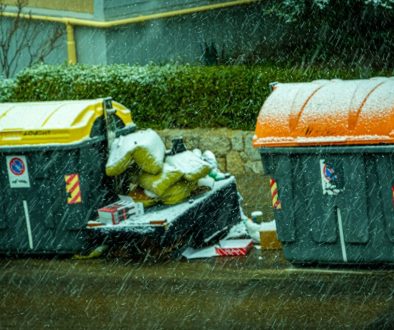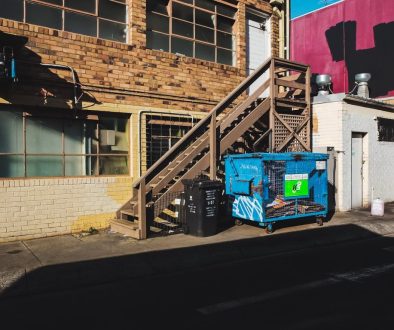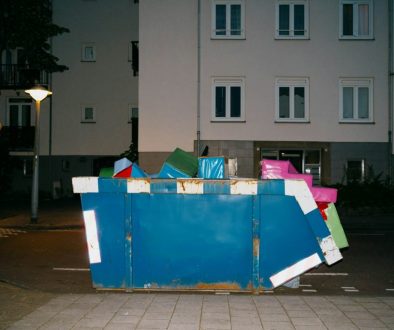Handling hazardous household waste safely is crucial for protecting both your family and the environment. Many common items found at home, such as cleaning agents, batteries, and paints, can pose risks if not managed properly. Understanding how to identify these materials and dispose of them in a safe way helps minimise potential hazards.
Proper knowledge empowers you to handle these materials with confidence, ensuring that they are not just thrown away with everyday refuse. By taking the right precautions, you can prevent environmental damage and reduce the risk of accidents in your home. This article guides you on practical steps to identify, store, and dispose of hazardous waste correctly, keeping your home and the world around you safer.
In learning about hazardous waste management at home, it becomes easier to grasp why these steps are necessary. Ensuring safety means being informed about potential risks and ready to act responsibly. Let’s delve into the essentials and better understand how to manage household hazardous waste effectively.
Identifying Hazardous Household Waste
Recognising hazardous waste in your home is the first step to handling it safely. Hazardous waste refers to items that can be harmful to people, animals, or the environment if not disposed of properly. This includes materials that are toxic, flammable, corrosive, or reactive.
Many common household items fall into these categories:
1. Cleaning Products: Many detergents, bleaches, and disinfectants contain chemicals that can cause skin irritation and respiratory issues. Always read labels for warnings.
2. Paints and Solvents: Leftover paints, thinners, and varnishes are often flammable and should be disposed of through proper recycling channels, not down the sink.
3. Batteries: Both single-use and rechargeable batteries contain metals like cadmium and lead, which are hazardous to the environment.
4. Pesticides and Herbicides: These garden chemicals can be toxic and should never be poured into drains or on the ground.
5. Electronic Waste: Devices like phones and computers contain hazardous materials such as mercury and lead. Ensure they are recycled correctly.
6. Automotive Fluids: Oil, antifreeze, and brake fluid are harmful to soil and water systems.
When identifying hazardous waste, look for warning symbols on product labels, such as skull and crossbones for toxicity or flames for flammability. Understanding these indicators helps you manage and dispose of these items correctly, preventing potential hazards in your household.
Proper Storage and Labelling Techniques
Once you’ve identified hazardous household waste, storing it safely is crucial. Proper storage prevents accidents and spills, keeping your home secure. Here are key practices for safe storage:
1. Use Original Containers: Keep hazardous products in their original containers whenever possible. The label offers critical handling and disposal instructions.
2. Secure Lids Tightly: Ensure lids are closed tightly to prevent leaks and accidental exposure to fumes.
3. Store in a Cool, Dry Place: Extreme temperatures can make hazardous materials more volatile. Store them in cool, dry areas, away from direct sunlight or heat sources like radiators.
4. Label Clearly: If you need to transfer contents, label the new container clearly with the product name and hazard warnings.
5. Separate Incompatibles: Keep acids away from bases and flammable items away from ignition sources to prevent reactions.
6. Accessibility: Store hazardous materials out of reach of children and pets, ideally in a high or locked cabinet.
7. Regular Checks: Periodically check storage areas for leaks, corrosion, and expired products. Safely dispose of any outdated materials.
Adhering to these storage tips helps prevent harmful exposure and simplifies the safe disposal of hazardous waste when the time comes. Protecting your home and family begins with managing these potentially dangerous substances effectively.
Safe Handling and Disposal Methods
Handling and disposing of hazardous waste safely protects both the environment and those in your home. By following proper guidelines, you can minimise risks and ensure waste is dealt with responsibly. Here are some key methods to keep in mind when dealing with hazardous waste:
1. Wear Protective Gear: Always use gloves and masks when handling hazardous materials. This reduces direct contact with harmful substances, safeguarding your health.
2. Follow Disposal Instructions: Hazardous materials often come with specific disposal instructions on their labels. Follow these guidelines carefully to prevent mishandling.
3. Use Designated Recycling Centres: Many local councils have drop-off points or recycling centres specifically for hazardous waste. These centres have the appropriate facilities to handle such waste safely.
4. Check Local Regulations: Regulations on hazardous waste disposal can vary. Verify what your local authority requires for safe and legal disposal.
5. Avoid Pouring Chemicals Down Drains: Never dispose of chemicals or hazardous substances down sinks or toilets. Doing so can pollute water systems and harm wildlife.
6. Contact Waste Disposal Services: Professional services can deal with large quantities or particularly dangerous materials. They ensure that such waste is disposed of correctly.
By adopting these practices, you contribute to a safer environment and help reduce the harmful impact of hazardous waste. Ensuring that waste is managed correctly reveals the importance of following established guidelines and regulations.
Emergency Response for Spills and Accidents
Accidents can happen, even with the best precautions. Knowing how to respond effectively to spills and accidents involving hazardous waste is crucial. By preparing a clear plan, you can deal with these situations quickly and minimise harm.
Immediate Actions in Case of a Spill:
1. Ensure Personal Safety First: Move away from the area if necessary and make sure no one is at risk. Personal safety is the priority.
2. Isolate the Area: Block off the affected area to prevent others from entering, especially children and pets.
3. Ventilate the Space: If indoors, open windows to disperse fumes or vapours from hazardous materials.
4. Contain the Spill: Use absorbent materials like sand or kitty litter to prevent the spill from spreading.
5. Clear and Notify: Once the area is secured, inform others in the home or nearby about the spill. If necessary, contact emergency services for further assistance.
6. Use Spill Kits: For homes with frequent hazardous material use, keep a spill kit on hand. These kits are designed to handle different types of spills safely.
7. Report and Dispose Correctly: Contact local waste authorities if the spill is extensive. Ensure the spilled material is disposed of appropriately according to local regulations.
By understanding these emergency steps, you can act swiftly and responsibly during spills or accidents, avoiding more significant harm or contamination. Planning and awareness are key in managing these incidents effectively.
Conclusion
Handling hazardous household waste involves careful attention to identification, storage, disposal, and emergency management. Each step plays a vital role in safeguarding our homes and the environment. By recognising which household items require special care, you take a proactive approach to safety. Ensuring proper storage and labelling prevents accidents and confusion. Understanding disposal methods helps minimise environmental impacts, while being prepared for spills and accidents ensures quick and effective responses.
Teaching these practices at home fosters a culture of safety and responsibility for all household members. These efforts support broader environmental protection initiatives by keeping hazardous substances out of landfills and waterways. Emphasising responsible waste disposal highlights everyone’s role in creating a sustainable and healthy environment.
For hazardous waste management, Enviro Skip Hire offers expert solutions for safe disposal and recycling, complemented by our skip hire in Cheshire services. Empower your family and community to make informed decisions about waste, leading to a cleaner, safer future. Reach out to Enviro Skip Hire today for all your waste management needs.




